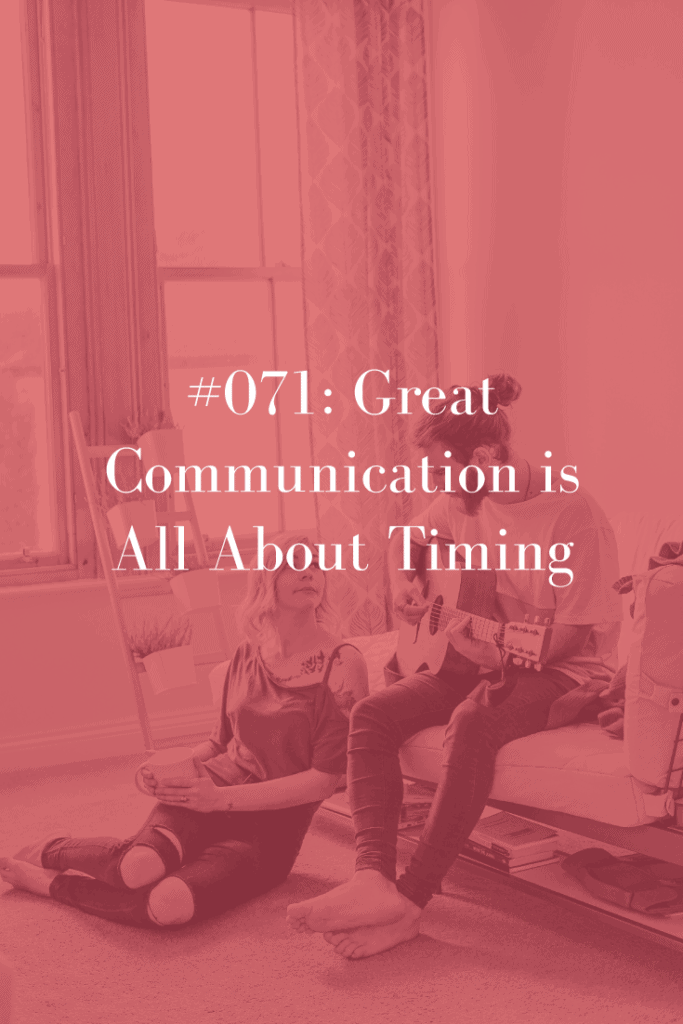
Today’s show is all about having a delayed reaction versus a delayed response in your relationship.
You’re Having that Same Argument:
You and your partner are in that same argument (again). You’ve been working on your self-awareness, so you’re actually able to be in the here and now and realize you’re in the fight (bravo!). Now you’re trying to remember all those great tools you’ve learned to stop the fight. That’s when you recall that you’re supposed to act, not react.
You immediately feel better because you’re thinking, “I’ve got this. I’m not going to let my partner get to me. I’m going to keep my cool and not say anything right now. I’m just going to listen and walk away. I’m going to be the better person.”
And you do just that. You effectively stop the fight because it takes two to tango and you’ve stopped dancing. As the day goes on, though, you start thinking about that conversation and you start stewing. You’re still pissed about whatever “very unfair” thing got said and it starts to fester in your brain. The problem is that you haven’t resolved anything in your head. You haven’t tried to see the other person’s point of view or really listen to what they were trying to express.
All you did was walk away. Because you haven’t worked through any of your thoughts and feelings from the argument, you end up being passive aggressive the next time you see your partner or maybe you find yourself saying something sarcastic or snide the next week. Maybe you even pick a new fight about something really vital like them using your razor (again) – all because you’re still pissed about this disagreement you had yesterday, last week or last month.
The reason this situation remained so screwed up is because you had a delayed reaction as opposed to a delayed response. Walking away so you don’t yell or stopping and taking 10 breaths so you can listen to the rest of a conversation is great.
However, there needs to be a specific follow-through to that.
What needs to happen next is an examination of your part in the argument. I need you to ask questions. I talk about asking questions a lot but, this time, they’re questions you want to ask to yourself.
I want you to ask yourself things like:
- “What’s my responsibility in what just happened?”
- “What role did I play in that argument?”
- “Why was my partner so sad/angry/defensive/insert emotion here?”
- “What is it that’s truly upsetting my partner?”
- “Was I defensive?”
- “If I had to do that conversation over again, what would I do differently?”
- “What can I do differently moving forward?”
- “Why am I so upset/sad/angry/defensive/insert emotion here?”
- “What else could be true in this situation?”
- “Why am I assuming X is a fact?”
A delayed response means that you’ve thought things through. You’ve asked yourself the questions and you’re trying to figure out, ultimately, what else could be true in this situation. Remember that you feel the way you think. So, once you start allowing yourself to have different thoughts about the situation, you can have different feelings about the other person, yourself and what happened. Now, when you resume the conversation, you can respond differently because you’re thinking differently.












